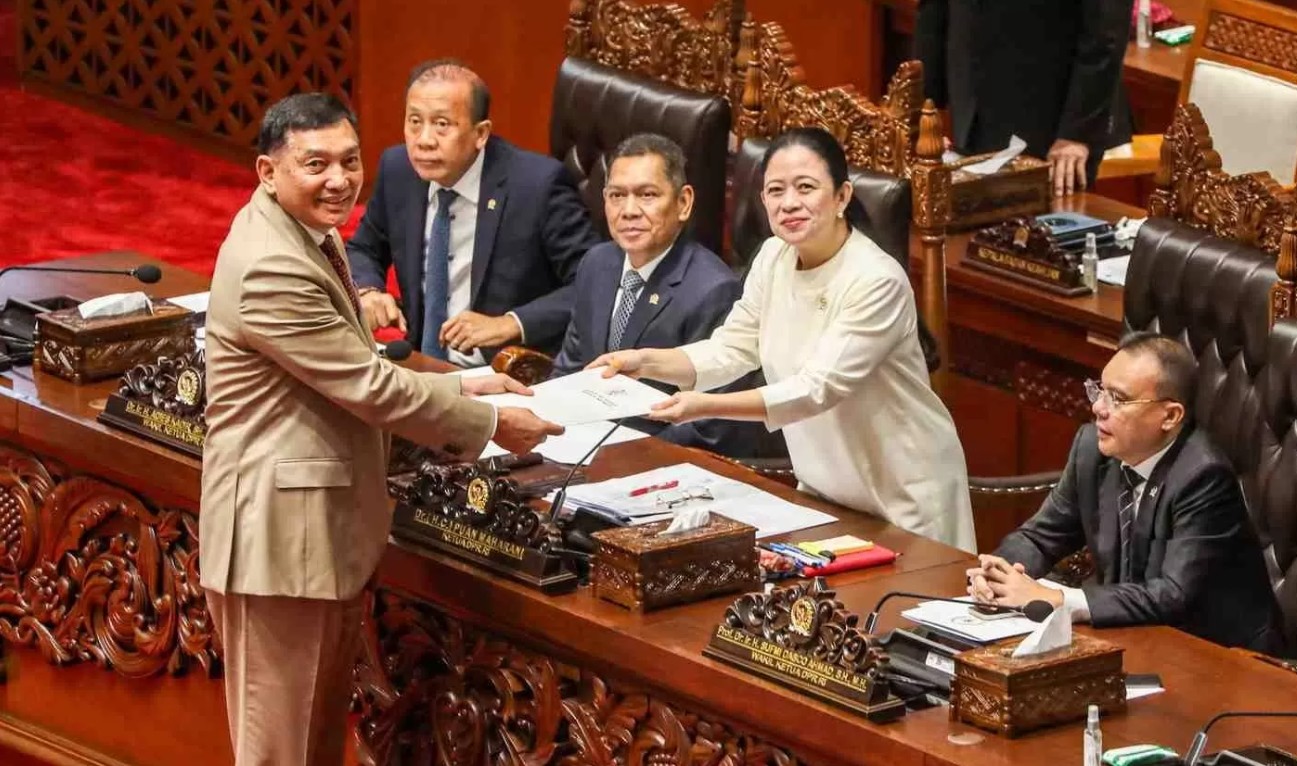TNI Law Affirms Limits on Soldiers’ Role in Civilian Domain, Prevents Return of Dual Military Function

Jakarta – The government together with the Indonesian House of Representatives officially stipulated the revision of the Indonesian National Armed Forces Law (UU TNI) which emphasizes the limitations of the role of active soldiers in civilian positions. This new regulation is considered a strategic step to ensure the professionalism of the TNI in the defense sector, while maintaining civilian supremacy in national and state life.
Minister of Defense (Menhan) Sjafrie Sjamsoeddin explained that the revision of the TNI Law was carried out to clarify the mechanisms and requirements for TNI soldiers who will carry out duties outside of military functions. He emphasized that active soldiers can only fill certain civilian positions after going through a strict mechanism.
“This change is not to expand the role of the TNI in the civilian realm, but rather to clarify and reinforce its boundaries. Soldiers must first leave active duty or enter retirement before carrying out duties outside the military,” said Sjafrie.
According to him, the TNI is currently in a transformation phase as a modern defense force that is not only ready to face conventional threats, but also non-conventional ones, such as terrorism, natural disasters, and disinformation.
“The TNI is transforming to support the country’s geostrategic interests,” he added.
In line with that, Deputy Chairman of Commission I of the Indonesian House of Representatives, Dave Laksono, emphasized that the revision of the TNI Law does not open up space for the return of the military’s dual function practice as occurred in the New Order era. According to him, the limitation of the TNI’s role in civilian positions has been regulated specifically and selectively.
“With this new regulation, there are only 14 specific civilian positions that can be filled by active soldiers. That is only in institutions that are directly related to the state’s defense and security functions, such as BNPB, BNPT, and BNPP,” Dave said.
He added that if a TNI soldier wants to occupy a position outside the 14 positions that have been determined, then he must resign from active service or enter retirement. According to him, this shows the commitment of the DPR and the government to ensure that military functions do not mix with the civilian realm.
From the government’s side, the Deputy for Dissemination and Information Media at the Presidential Communication Office (PCO), Noudhy Valdryno, emphasized that the revision of the TNI Law had been drafted very carefully so as not to open up space for the return of the TNI’s dual function.
“The government is committed to maintaining civilian supremacy. This regulation actually strengthens democracy because it provides clear boundaries for active TNI soldiers. Unlike Law Number 2 of 1988 concerning ABRI which previously gave the military the freedom to sit in legislative and executive positions,” said Noudhy.
He explained that the appointment of active TNI soldiers in civilian positions only applies to institutions related to the TNI’s main duties, such as handling crises, disasters, or countering terrorism.
“That is still with special considerations, not something that is general or wide open,” he stressed.
With the revision of the TNI Law, Indonesia is considered to have made progress in strengthening the principles of civil-military democracy. Limiting the role of the military in the civilian realm is a form of adaptation to the challenges of the times without sacrificing the values of reform and professionalism of the armed forces. [^]
